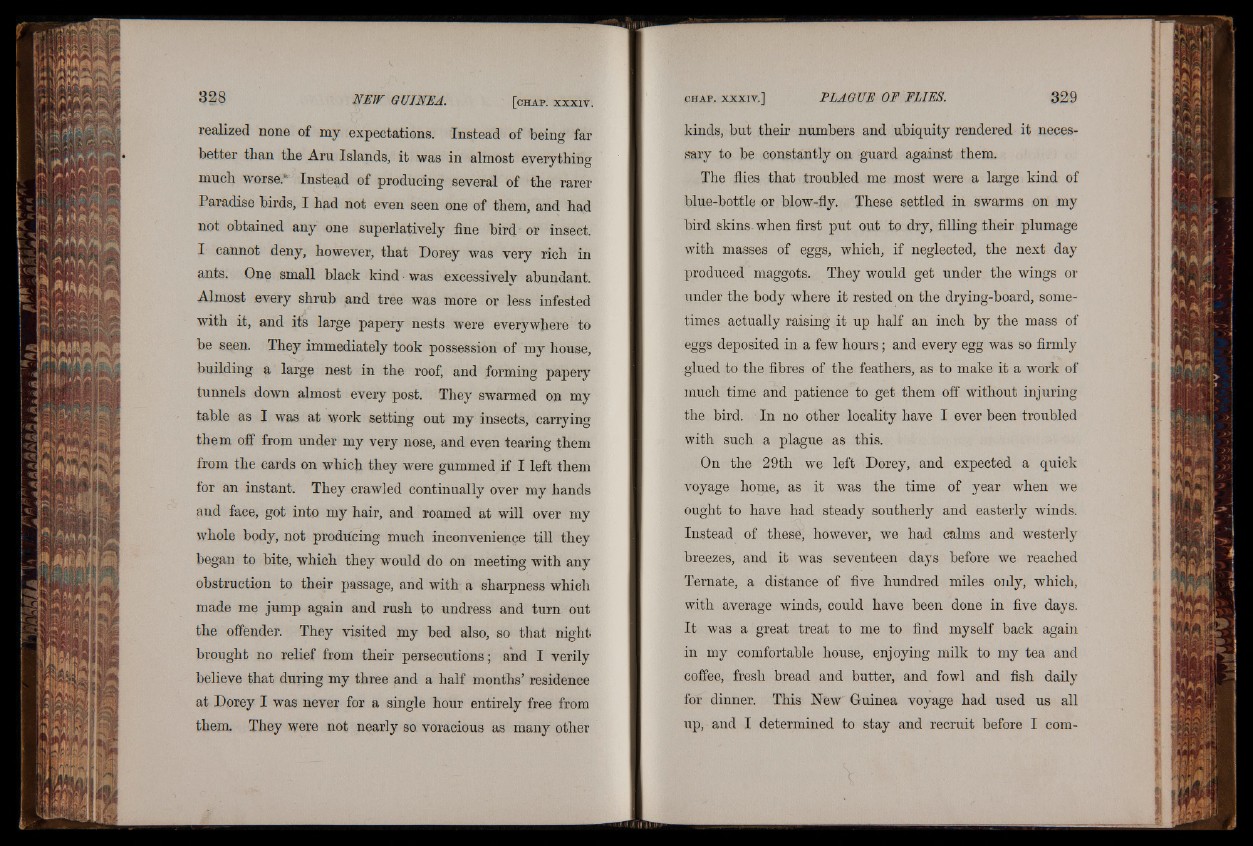
realized none of my expectations. Instead of being far
better than the Aru Islands, it was in almost everything
much worse.* Instead of producing several of the rarer
Paradise birds, I had not even seen one of them, and had
not obtained any one superlatively fine bird or insect.
I cannot deny, however, that Dorey was very rich in
ants. One small black kind was excessively abundant.
Almost every shrub and tree was more or less infested
with it, and its large papery nests were everywhere to
be seen. They immediately took possession of my house,
building a large nest in the roof, and forming papery
tunnels down almost every post. They swarmed on my
table as I was at work setting out my insects, carrying
them off from under my very nose, and even tearing them
from the cards on which they were gummed if I left them
for an instant. They crawled continually over my hands
and face, got into my hair, and roamed at will over my
whole body, not producing much inconvenience till they
began to bite, which they "would do on meeting with any
obstruction to their passage, and with a sharpness which
made me jump again and rush to undress and turn out
the offender. They visited my bed also, so that night
brought no relief from their persecutions; and I verily
believe that during my three and a half months’ residence
at Dorey I was never for a single hour entirely free from
them. They were not nearly so voracious as many other
kinds, but their numbers and ubiquity rendered it necessary
to be constantly on guard against them.
The flies that troubled me most were a large kind of
blue-bottle or blow-fly. These settled in swarms on my
bird skins when first put out to dry, filling their plumage
with masses of eggs, which, if neglected, the next day
produced maggots. They would get under the wings or
under the body where it rested on the drying-board, sometimes
actually raising it up half an inch by the mass of
eggs deposited in a few hours; and every egg was so firmly
glued to the fibres of the feathers, as to make it a work of
much time and patience to get them off without injuring
the bird. In no other locality have I ever been troubled
with such a plague as this.
On the 29th we left Dorey, and expected a quick
voyage home, as it was the time of year when we
ought to have had steady southerly and easterly winds.
Instead of these, however, we had calms and westerly
breezes, and it was seventeen days before we reached
Ternate, a distance of five hundred miles oidy, which,
with average winds, could have been done in five days.
It was a great treat to me to find myself back again
in my comfortable house, enjoying milk to my tea and
coffee, fresh bread and butter, and fowl and fish daily
for dinner. This Hew Guinea voyage had used us all
up, and I determined to stay and recruit before I com